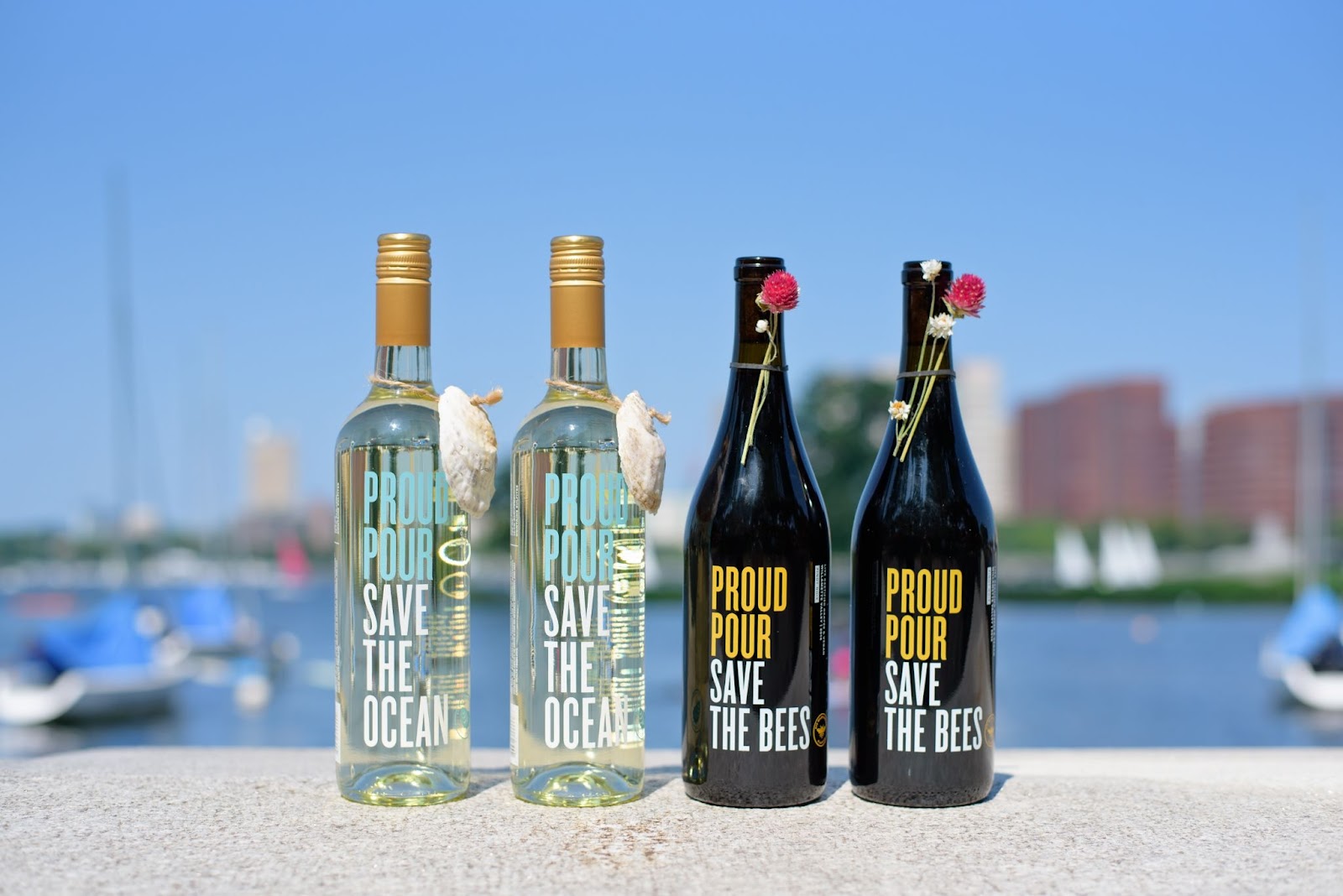
What pairs nicely with a wine aerator?! Wine! Proud Pours tasty wines and cider support 22 environmental nonprofits protecting bees, soil, wild oysters, sea turtles, and coral reefs. Always high quality and sustainably grown, their drinks are a celebration of good living and our beautiful planet. Give your newlyweds the best of both worlds, a delicious drink and helping our planet!
CHEERS
TO CHANGE
Your Happy Hour just got a major upgrade. Our tasty wines and cider support 22 environmental nonprofits protecting bees, soil, wild oysters, sea turtles, and coral reefs. Always high quality and sustainably grown, our drinks are a celebration of good living and our beautiful planet.
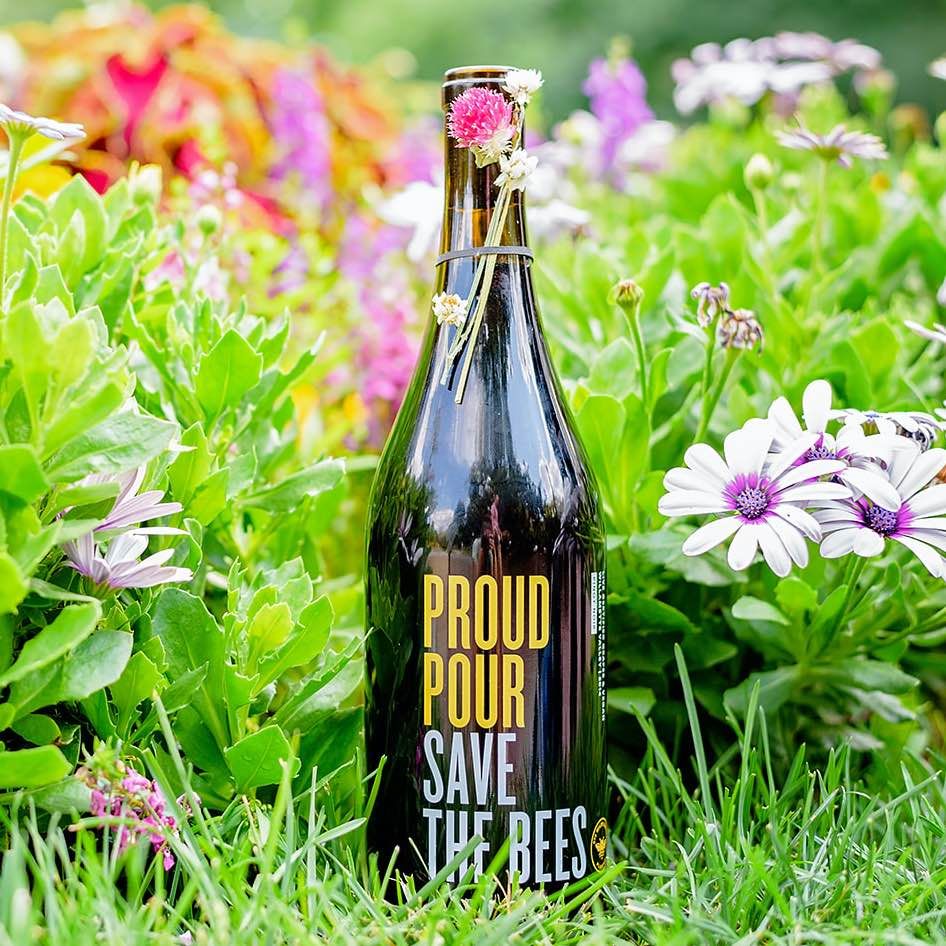
Pinot Noir
PINOT FOR BEES
Impact: Every bottle of this lovely Pinot Noir plants 35 sq ft of bee habitat on farms across North America.
Total: 90 acres of wildflowers planted to date.
Our beautifully balanced Oregon Pinot Noir pairs nicely with nature documentaries and mowing your lawn less frequently.
Did you know bees pollinate one-third of the food we eat? Pollinating alongside the non-native honeybee are 3,600 species of bees native to North America, none of which make honey!
These native bees are mostly solitary and build little nests in the ground. Like the honey bee, native bees are critical pollinators under threat, but unlike the honey bee, they don’t get much attention. Native bees are often more efficient at pollinating crops that evolved in North America, like blueberries, pumpkins, watermelons, and tomatoes.
Every bottle of this light, earthy Pinot Noir replants bee habitat and wildflowers on farms across the U.S., which benefits native bees, honey bees, the local ecosystem, and farmers!
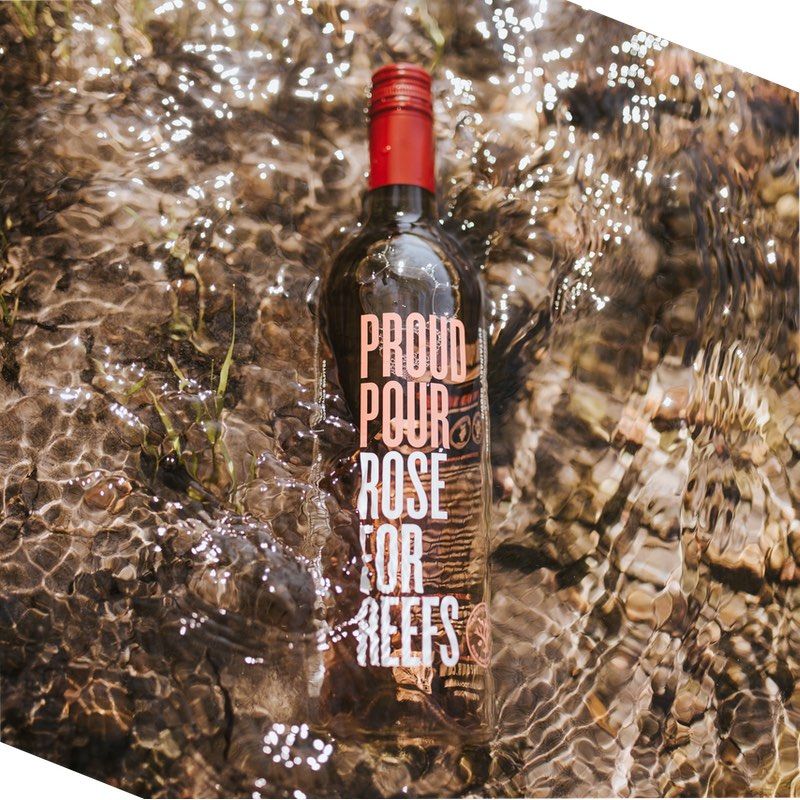
Rosé
ROSÉ FOR REEFS
Impact: Every three cases of this refreshing Rosé grows and plants a new baby coral to restore damaged reefs.
Total: Over 200 baby corals grown and outplanted to date.
Did you know coral reefs cover just 1% of the ocean floor but support 25% of all marine life? This lovely Rosé was made with organic grapes in Southern France to celebrate coral reefs and all they do for our oceans.
Like rainforests on land, coral reefs are incredibly biodiverse and severely threatened by climate change and other human impacts. Reefs also provide a livelihood for millions of people through fishing and tourism.
Our Rosé supports critical work to restore damaged reefs by growing and outplanting new baby corals. Coral scientists will collect large amounts of spawn from wild reefs and then breed the corals to produce genetically unique baby corals. When those young corals are outplanted to degraded reef sites, that genetic diversity can make the reefs more resilient in the face of climate change and other threats.
Enjoy this crisp, refreshing Rosé for Reefs, knowing you deserve such a delicious drink. Pairs well with sunsets.
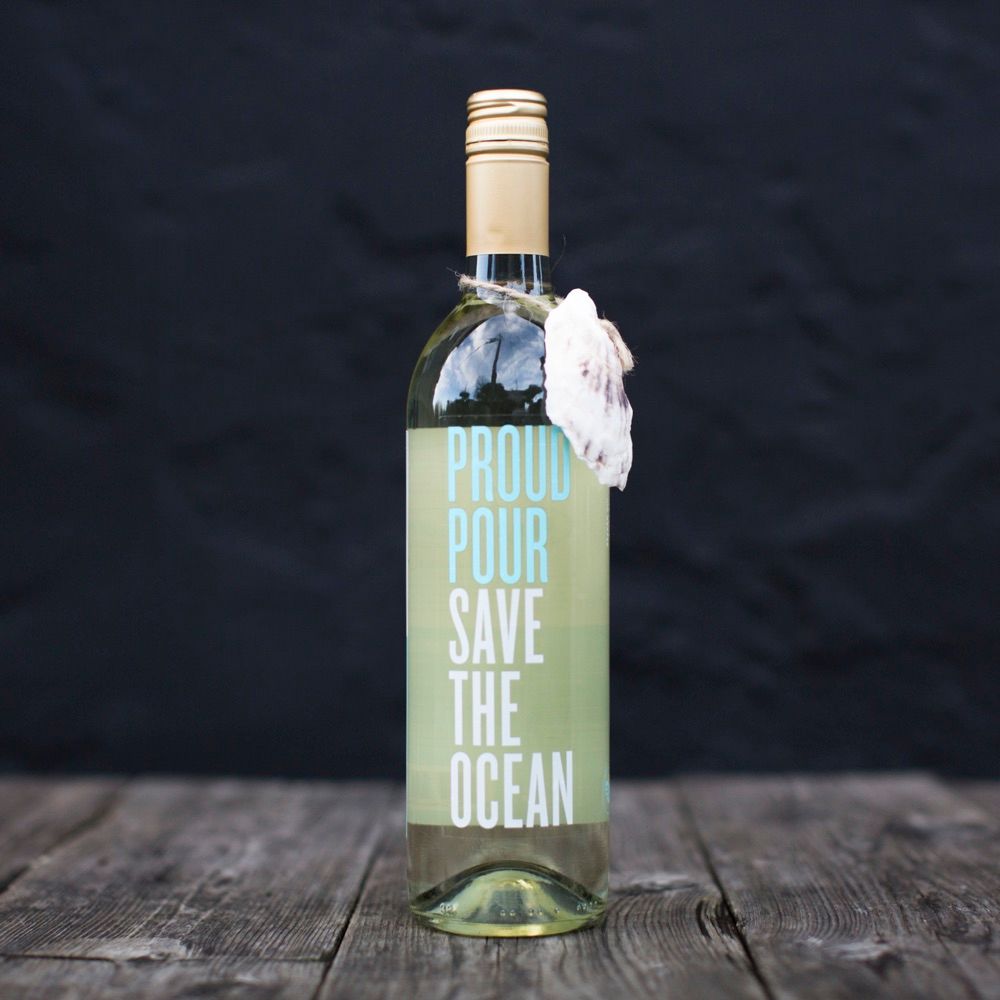
Sauvignon Blanc
SAUVIGNON BLANC
Impact: Every bottle of this crisp, organic Sauvignon Blanc supports the restoration of wild oysters to our estuary ecosystems.
Total: 14 million wild oysters restored to date.
Did you know we’ve lost more than 90% of our wild oyster reefs in North America? This refreshing Sauvignon Blanc was made with organic grapes in Southern France to celebrate the critical role these hardworking filter-feeders play in our oceans.
When we think of oysters, most of us think of farmed oysters, which is what we see at raw bars. Farmed oysters are almost always sustainably raised, and those farms can actually improve the water quality around them, so eating oysters is good for the planet. (Don’t hesitate to support your local oyster farmer and enjoy these very healthy bivalves..or even triple your consumption!)
In the wild, oysters are a little different. Wild oysters attach to each other when they’re quite young and can build large structures of reefs or beds, which serve as habitat for fish, crab, shrimp, and thousands of other species. Those oyster reefs also help prevent the erosion of our coastline and clean the water around them, in particular by pulling out excess nutrients like nitrogen. A single oyster can filter 30 gallons of water per day.
You raw bar lovers will like this last part. Our environmental partners recycle used shell from raw bars and plant baby oysters on them, which they then put back in the water to rebuild the wild reefs! This is the wonderful work you’re supporting when you open our Sauvignon Blanc.
Pair the wine with a sunset or with your favorite local oysters, clams, mussels, sea scallops, or periwinkles!
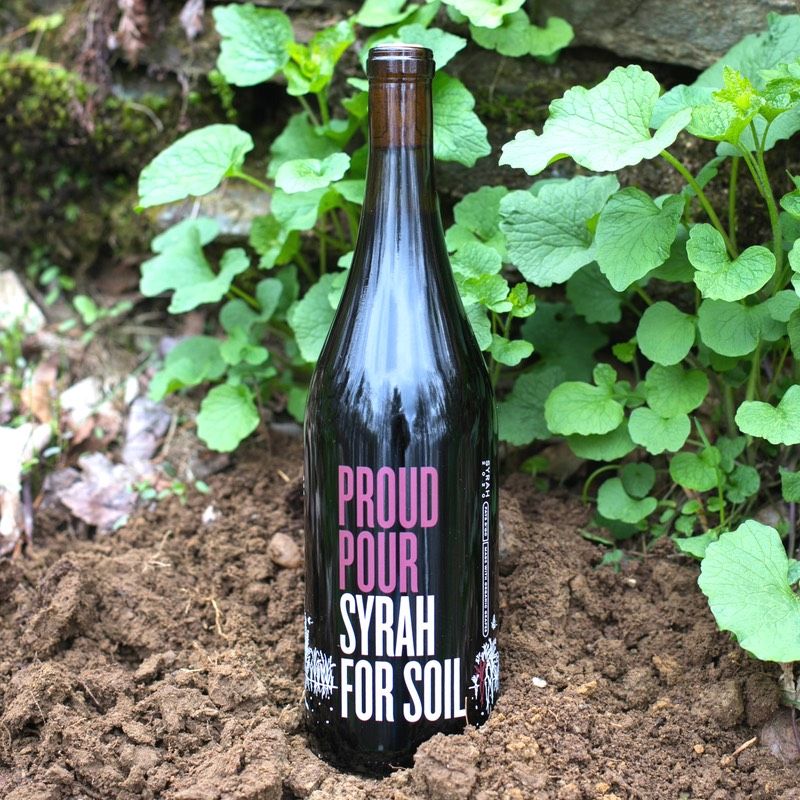
Syrah
SYRAH FOR SOIL
Impact: This beautiful, bright Syrah helps support U.S. farmers who are transitioning to regenerative farming.
Total: Just getting started!
When farms use regenerative practices like no-till and cover cropping, the result is healthy, living soil filled with worms, fungi, and microbes. This type of farming removes carbon pollution from the air, counteracting climate change. It also happens to protect wildlife, our water, and farmers’ bottom lines.
This Syrah supports American Farmland Trust’s work to help farmers transition to regenerative practices. Made with organic grapes in the South of France, the wine is bright and mineral with light, balanced tannins.
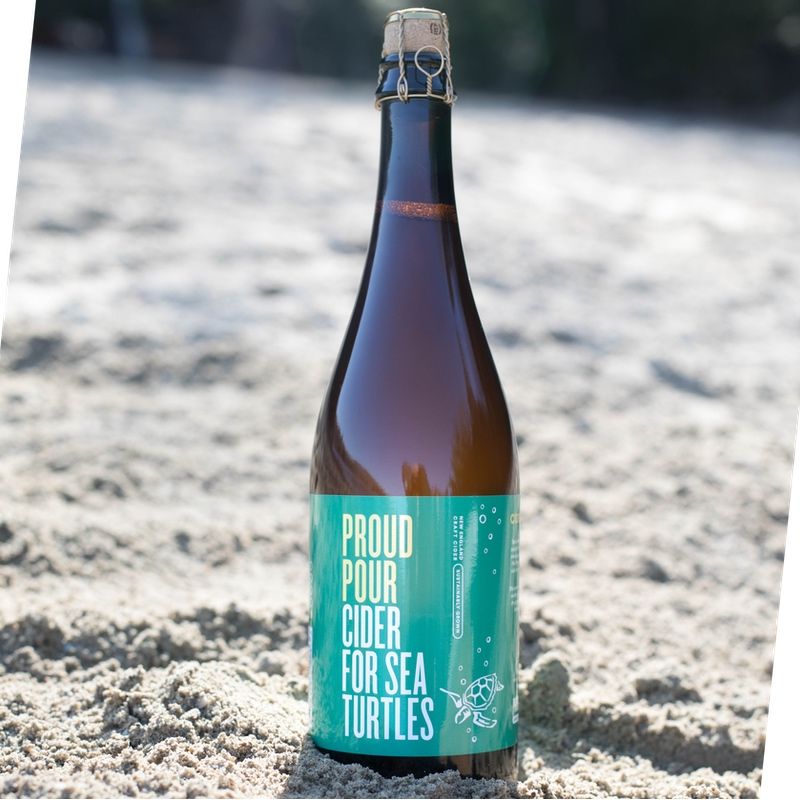
Cider
CIDER FOR SEA TURTLES
Impact: Each case of this dry, crisp New Hampshire cider provides sea turtle hospitals enough funding to feed one of their patients for a day.
Total: Over two years of food for a sea turtle patient.
As everyone knows, sea turtles are both cute and majestic. But did you know sea turtles play a critical role in the ocean ecosystem? When sea turtles graze on sea grass, they stimulate the growth of that ecosystem, which is critical to protecting ocean fish. Some sea turtles protect coral reefs ecosystems by feeding on sponges, which would otherwise outcompete the slower-growing corals. And some feed on jellyfish, which prevents jellyfish populations from getting out of control. (Leatherback sea turtles will eat hundreds of pounds of jellyfish in a single day!)
To celebrate these amazing creatures, this craft New Hampshire cider helps support the wonderful work of sea turtle hospitals. Sea turtles face numerous threats, including climate change, outdated fishing practices, plastic pollution, unfettered coastal development, and boat strikes. Numerous turtles that are sick or injured become stranded on beaches across North America. Through networks of dedicated volunteers, stranded turtles are saved and taken to sea turtle hospitals, where they are rehabilitated until they can be returned to the oceans to live wild again.
Feel great about popping open this cider. Fermented dry with a complex acid-bitter balance, it pairs well with sunny days at the park and cold winter nights.
WHY
WE EXIST
Proud Pour shares the mission of our environmental restoration partners, which is to protect and heal this planet.
To support our environmental partners in their critical restoration work, we give them 5% of our top-line revenue, 5x the typical give back company.
NON-
PROFITS
These science-based environmental nonprofits we support are the superstars. You couldn’t find a more hardworking, dedicated group, except possibly a colony of oysters filtering hundreds of thousands of gallons of water each day.
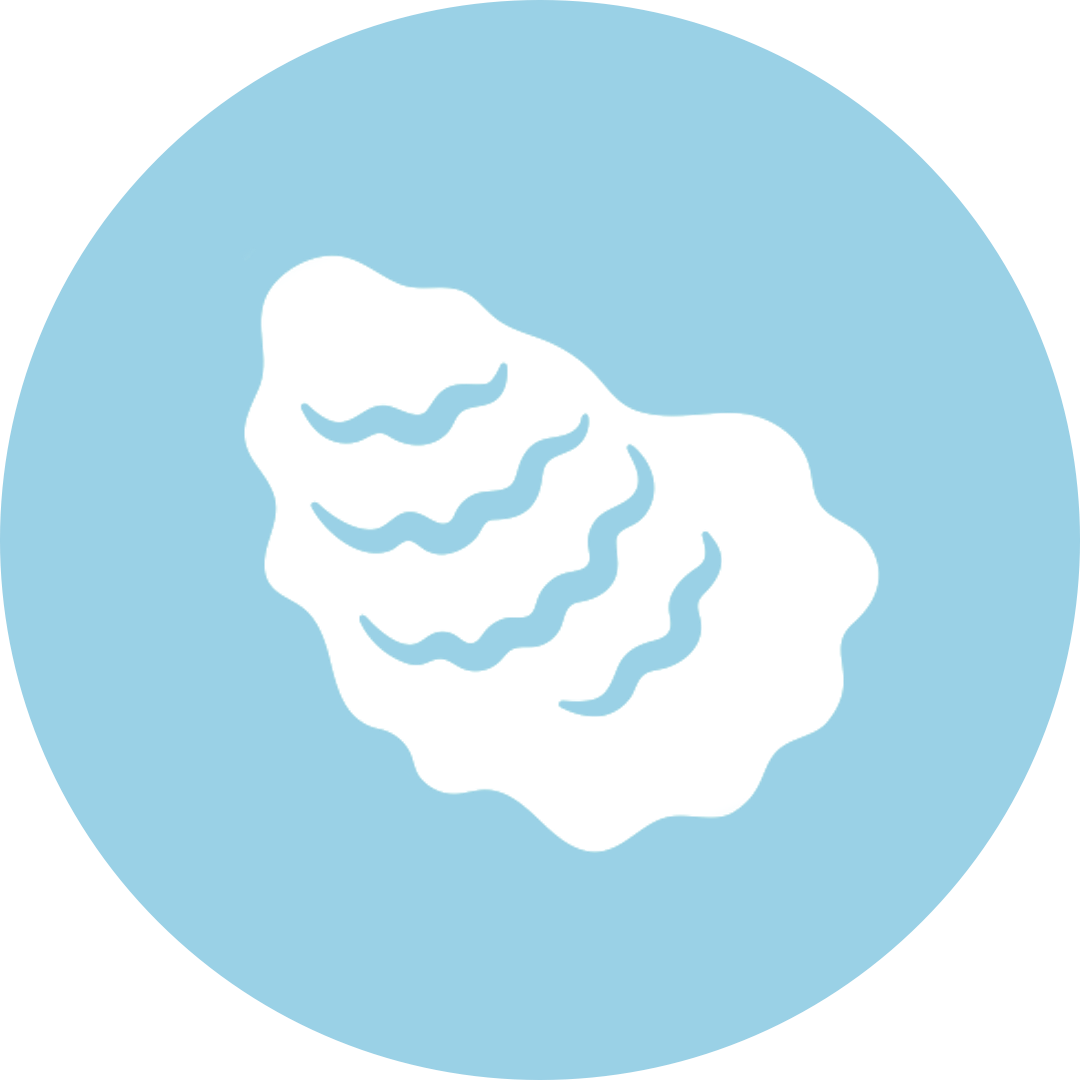
14 million wild oysters restored
Wild oyster reefs are a critical ecosystem in our North American estuaries, and we’ve lost more than 90% of them. When you enjoy farmed oysters, which are sustainable, oyster restoration nonprofits can collect the shell from the raw bar, plant baby oysters on them, and put them back in the water to rebuild our wild reefs!
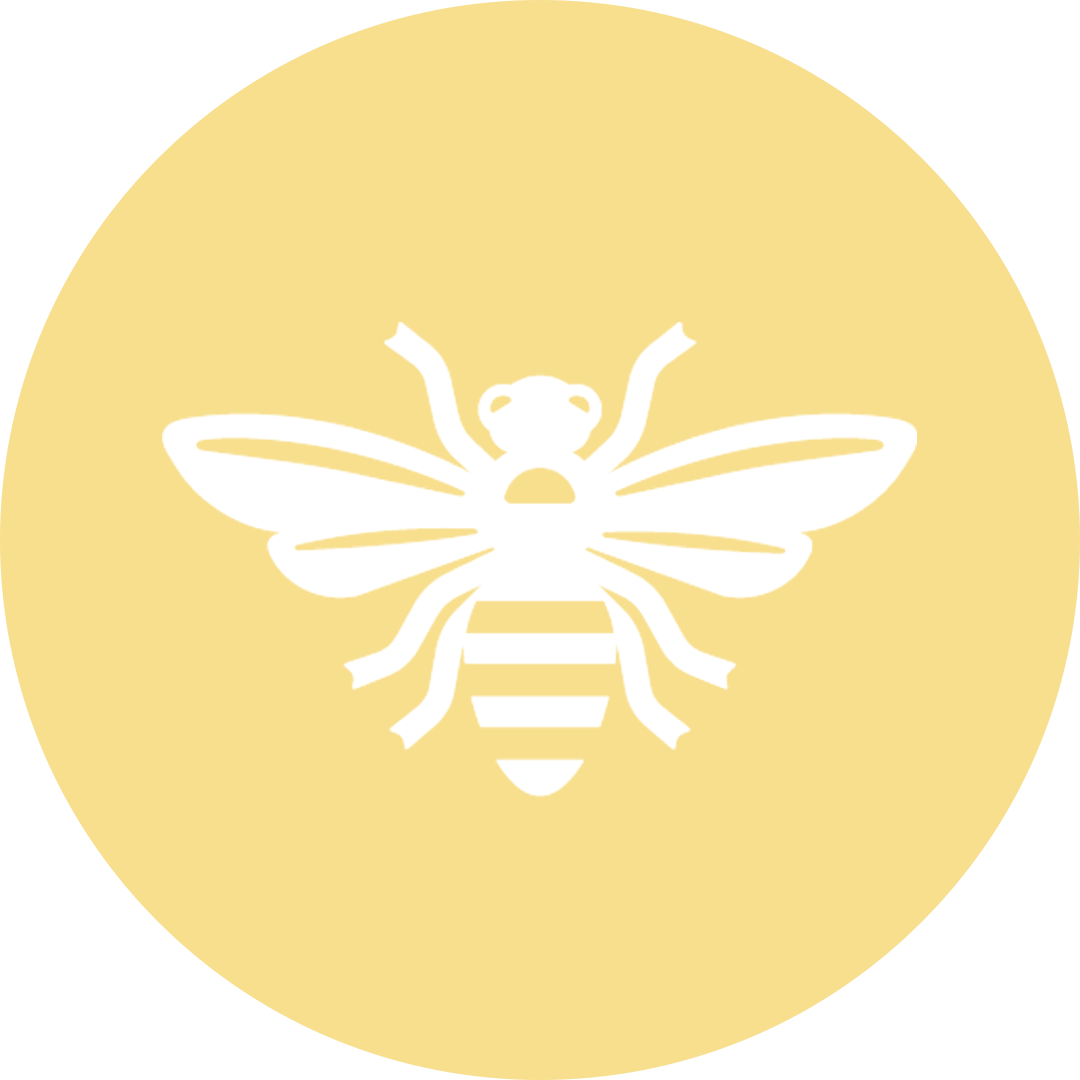
90 acres of bee habitat planted
For every 1 in 3 bites of food on your plate, you can thank a bee or other pollinator. So clearly bees are very important! But did you know that pollinating alongside the domesticated honey bee in North America are 3,600 species of wild, native bees, none of which make honey? These native bees pollinate our crops and ecosystems free of charge and generally go unnoticed and unappreciated. Planting native flowering plants creates bee habitat and forage and is a critical way to protect these little creatures.
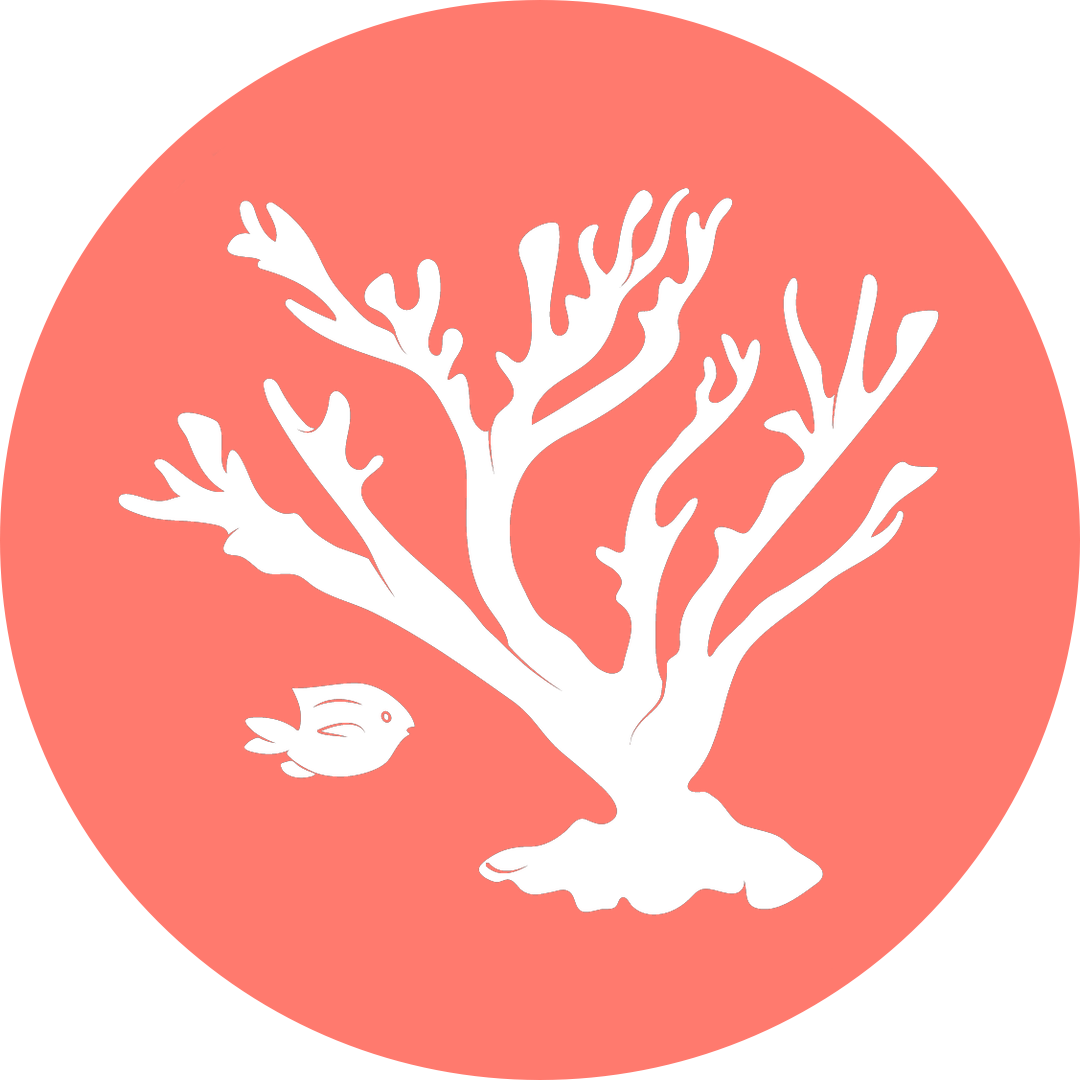
Over 200 baby corals grown and planted
Did you know coral reefs make up just 1% of the ocean floor but support 25% of all marine life? This astonishing habitat is under terrible threat from warming waters, destructive fishing practices, and other human impacts. Fortunately, intrepid scientists are hard at work breeding corals to make them more resilient and to restore damaged reefs. We’ll raise a glass to that!
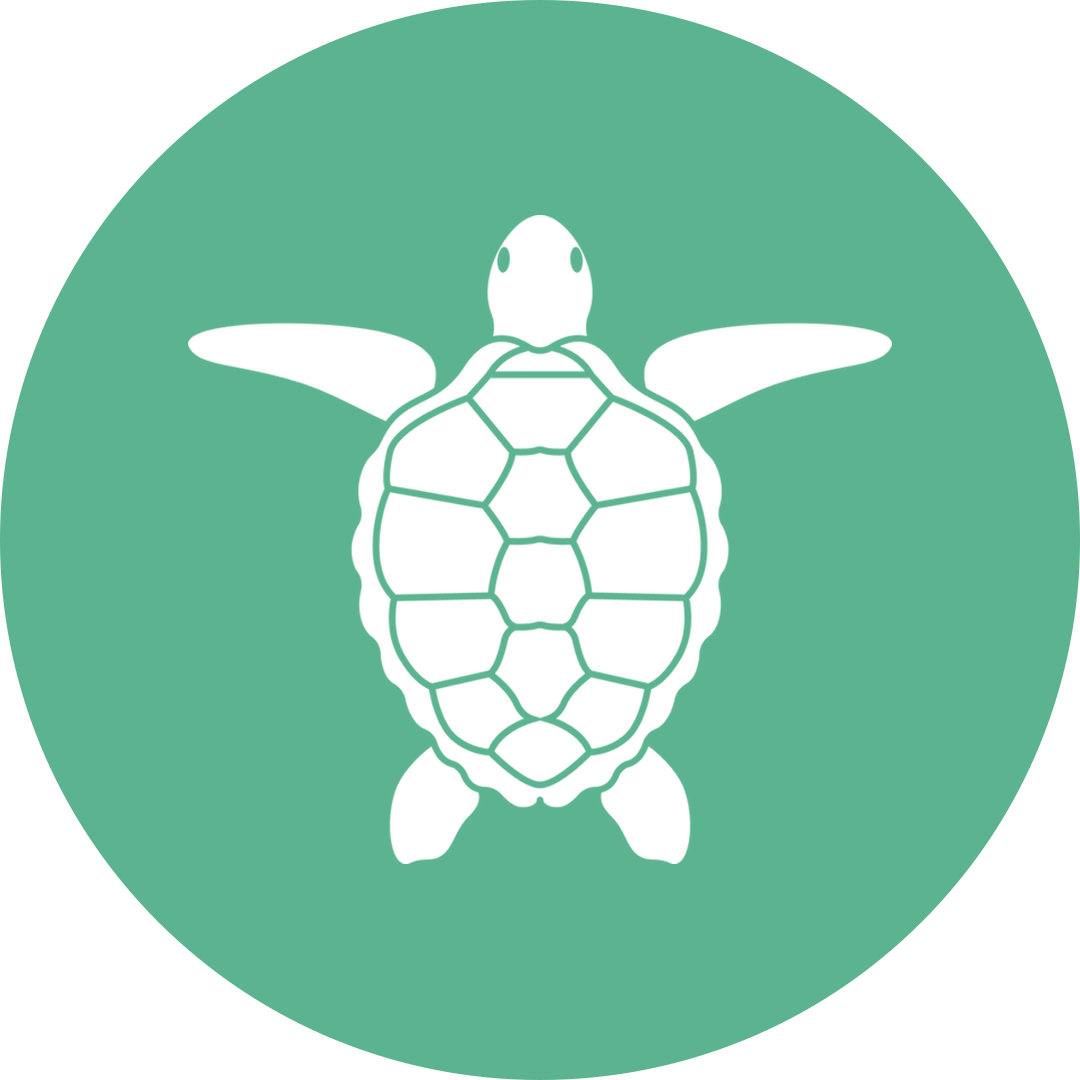
Over 2 years of food purchased for a sea turtle patient
Sea turtles play an important role in the ocean ecosystem – controlling jellyfish, helping sea grass grow, and cleaning sponges from coral reefs. They also face significant threats from outdated fishing practices, boat strikes and coastal development, plastic pollution, and climate change. Sea turtle hospitals take in sick or injured turtles that have become stranded and rehabilitate them so they can go back to the big blue!
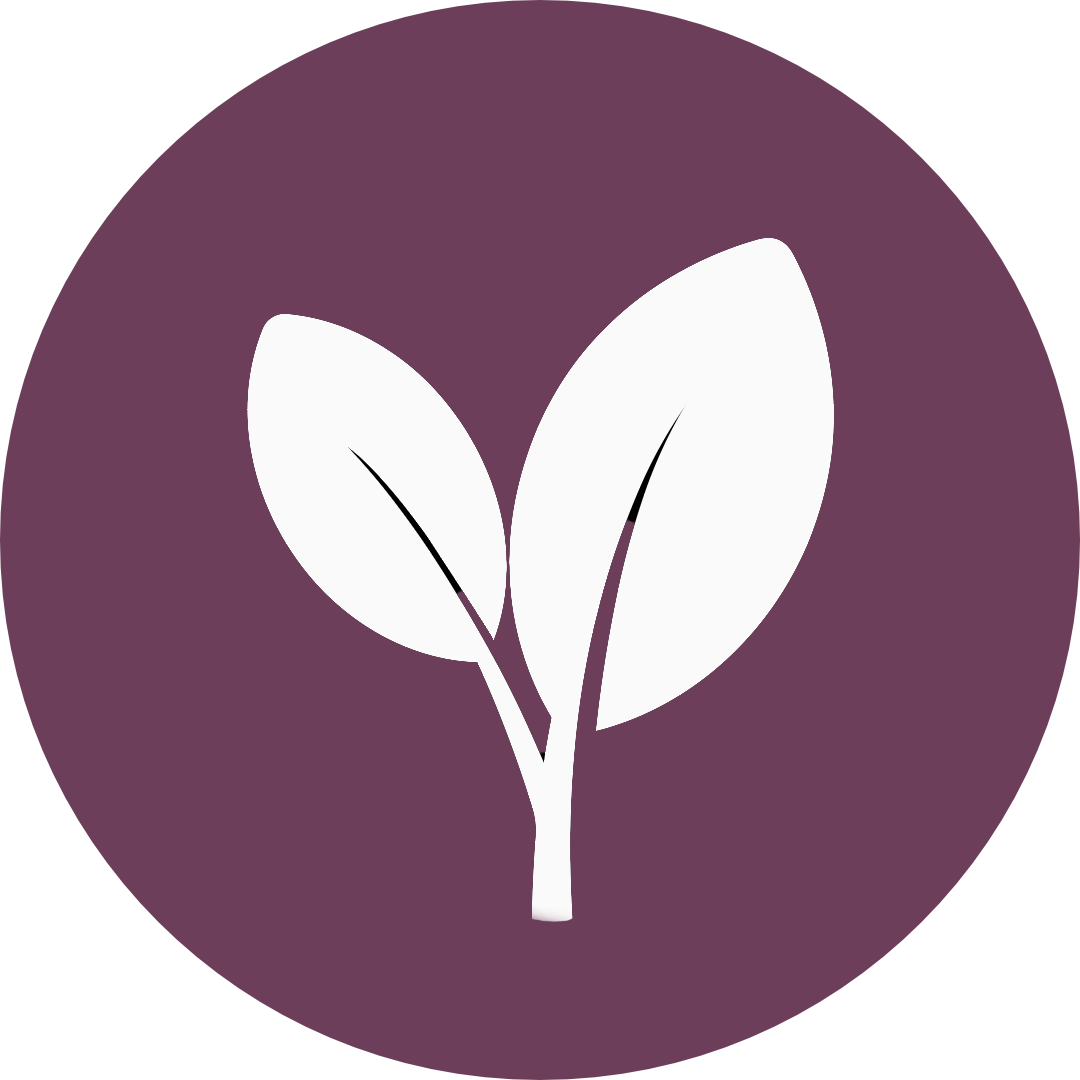
Just got started!
When farms use regenerative practices like no-till and cover cropping, the result is healthy, living soil filled with worms, fungi, and microbes. This type of farming removes carbon pollution from the air, counteracting climate change. It also happens to protect wildlife, our water, and farmers’ bottom lines.





